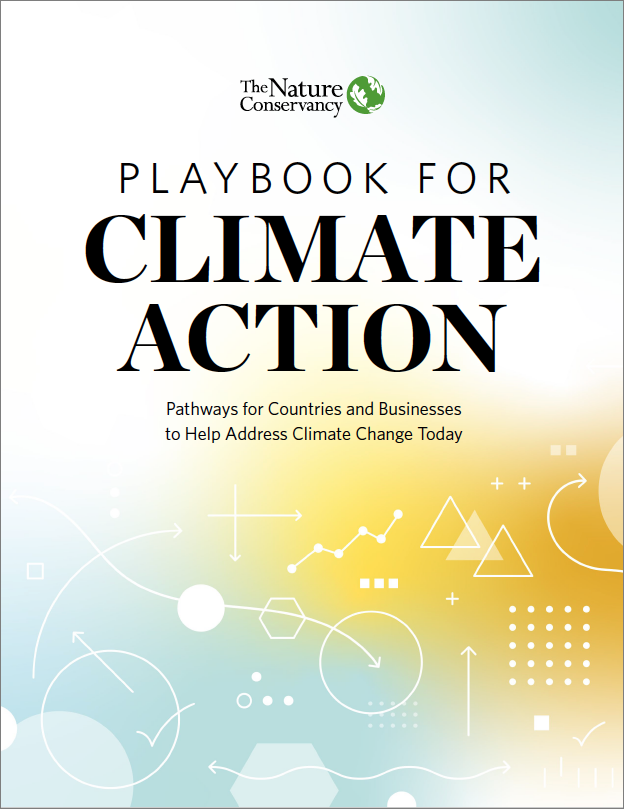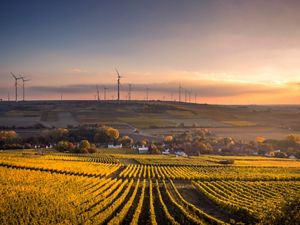U.S. States Making the Difference—Catalysts for Climate Action
By Lynn Scarlett, Former Chief External Affairs Officer
Even as the U.S. government has pressed “pause” on climate action, state legislatures are accelerating their climate action commitments. Over the past year, states have passed major legislation to address climate change. California, Colorado, Nevada, Hawaii, New Mexico, Maine, Maryland, Washington State and, most recently, New York have all passed bills that seek to transition to clean energy, promote energy efficiency and accelerate transportation electrification.
Ironically, some champions of climate action view these efforts as cause more for concern than celebration. These laws are coming primarily from states with recently elected Democratic majorities, underscoring that bipartisan climate action remains elusive.
But there is a more optimistic lens through which to view these state actions. They signal a potential tipping point— one that links a growing recognition of the urgent need for climate action with the desire to catch the next wave of economic opportunity and innovation. How we generate, transmit, use and store electricity in the United States is rapidly evolving. How fast that transition happens, and how it might benefit communities, electricity ratepayers, and other stakeholders, are motivating state action.
Climate, Courage and the Ambition We Need Now
It’s in the devilish details of action where progress happens, writes Lynn Scarlett.
Read the BlogThough many states saw changes in party control of their legislatures, governorship, or both in 2018, recent state wins for climate action are not exclusively partisan. Maine, in particular, passed mandatory GHG reductions of 45 percent from 1990 levels by 2030 and 80 percent by 2050 with strong bipartisan majorities in both chambers, without even a roll call required in the Senate. By 2030, 80 percent of Maine’s electricity will come from renewable sources, and a host of bills that will expand net metering and community solar energy, while reducing dependence on heating oil, also prevailed. Maryland’s Republican Governor Larry Hogan signed off on legislation that will require 50 percent of electricity to be renewable by 2030, and anticipates state planning to get to 100 percent clean energy by 2040.

Ambitious legislation in statehouses from Olympia to Augusta, from Albany to Santa Fe, does not magically appear ready for a floor vote six months after an election. These efforts are the result of patiently built policy proposals and coalitions carefully assembled over the course of years. Washington State, in particular, went through two hard fought ballot measures in succession before finally seeing a legislative victory on climate.
The earlier ballot battles, disappointing at the time, were the foundation upon which the most recent legislation passed. In New York and Washington State and nearly every other state that has passed legislation, the terms of the legislation were painstakingly negotiated, navigating challenging issues like addressing impacts to economically distressed and indigenous communities, effects on rural communities, and differential impacts to industry.
Quote
Ambitious legislation does not magically appear ready ... These efforts are the result of patiently built policy proposals and coalitions carefully assembled over the course of years.
Yes, an amenable legislature is needed to turn climate policy proposals into law. But just like an Olympic sprinter trains for years to win a race that only lasts about 10 seconds, the moment a piece of legislation passes is actually the culmination of years of effort from a wide range of stakeholders.
Though much of this first wave of legislation relied on Democratic majorities to pass, that dynamic is changing—as we have seen in Maryland and Maine, where Republicans lent their support. A central driver for broader bipartisan action is economics. Clean energy and energy efficiency already employ more people than the fossil fuel industry and are poised to create even more jobs. Increasingly, renewables and clean energy provide the smartest choice to power economies, bringing environmental benefits and, more and more, offering cheaper energy than fossil fuels.
As these states on the vanguard of ambitious climate action reap the environmental and economic benefits of an energy profile relying more and more on renewables, we can count on other people in other states—without regard to political affiliation—pressing for clean energy. And it will be harder for federal lawmakers to ignore these solutions for the nation when their own states have embraced them so thoroughly and successfully.
Resources
-

Playbook for Climate Action
Five ways to spark global, multisector change for the planet right now
DOWNLOAD
Global Insights
Check out our latest thinking and real-world solutions to some of the most complex challenges facing people and the planet today.



